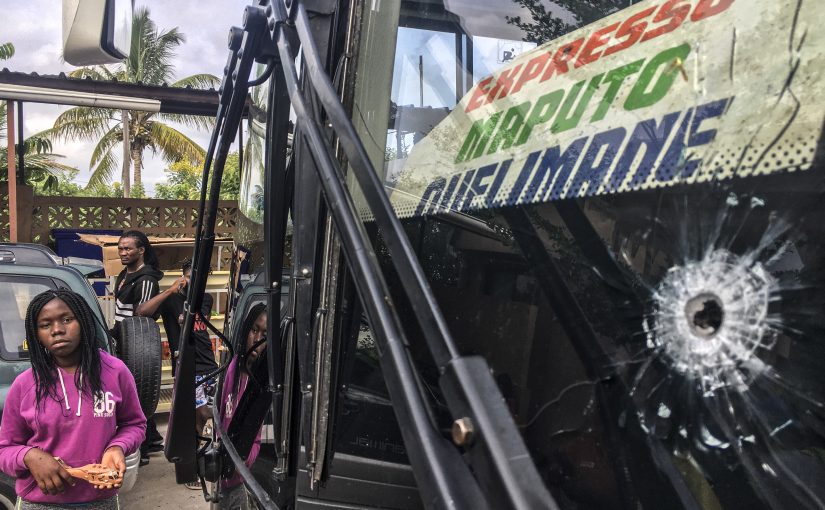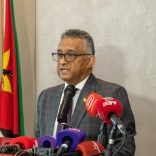Mozambique: Police seize more than 600,000 meticais in counterfeit notes, five arrested - Lusa | ...
Mozambique: Attack on bus like ‘rain of bullets’ – witnesses

Photo: Lusa
An attack on a bus that killed one person and injured another on Monday in central Mozambique was like a ‘rain of bullets’ on the country’s main road, witnesses told Lusa on Tuesday.
“Suddenly I saw a rain of bullets coming at me. I decided not to stop, I preferred to die rather than walk, it was this decision that saved me. I also saved the passengers,” said Carlos Macuacua, the driver of the passenger bus that was attacked on Monday in Manica province, while travelling from Maputo to Quelimane.
The attack took place on national road 1 (EN1) near Muda Serração, in the district of Gondola, at 7 p.m. (5 p.m. in Lisbon), after nightfall.
Stelio João, the ticket collector, describes that the shots were fired from a forest.
“The first was to the front of the bus and the remaining shots came from the driver’s side,” Stelio João said, stressing that the driver was not frightened by the shots and continued, which saved the passengers.
“We came quietly and suddenly took a rain of shots without knowing why,” he said.
In total, there were 45 passengers on the bus, who were forced to spend the night in Inchope, just over 40km from the point where the attack occurred, and it was only possible to take the wounded to a local health unit in the morning.
Sources at the hospital told Lusa that the wounded man still had a bullet lodged in his head and had been transferred from Gondola hospital to Chimoio Provincial Hospital.
The attack also killed one of the passengers, a man, who was taken to the Gondola hospital morgue.
In the same area in which Monday’s attack occurred, a cargo truck, which was transporting dry fish from Inhassoro (Inhambane) to the city of Beira (Sofala), was attacked and a person was injured and is now hospitalised in orthopaedics ward at Chimoio Provincial Hospital.
With this incident, the total number of deaths has risen to 11, since August, in armed attacks by groups that roam the forests of the region against civilian and police targets.
The situation of insecurity affects two of the main road corridors in the country, the EN1, which connects the north to the south of the country, and the EN6, which connects the port city of Beira to Zimbabwe and other countries in the interior of southern Africa – leading to the strengthening of policing and escorts in some sections.
The Police of the Republic of Mozambique (PRM) has blamed a group of dissident opposition guerrillas, the self-proclaimed Military Junta of the Mozambican National Resistance (Renamo), for the attacks.
The incursions took place in a Renamo stronghold, where the guerrillas confronted the Mozambican defence and security forces and hit civilian targets until the December 2016 ceasefire.
Officially, the party is moving away from the current incidents and says it is complying with the disarmament actions contained in the peace agreement of 6 August of this year, but a dissident group (considered “deserter” by Renamo) led by Mariano Nhongo remains entrenched, demanding better conditions for demobilisation.













Leave a Reply
Be the First to Comment!
You must be logged in to post a comment.
You must be logged in to post a comment.